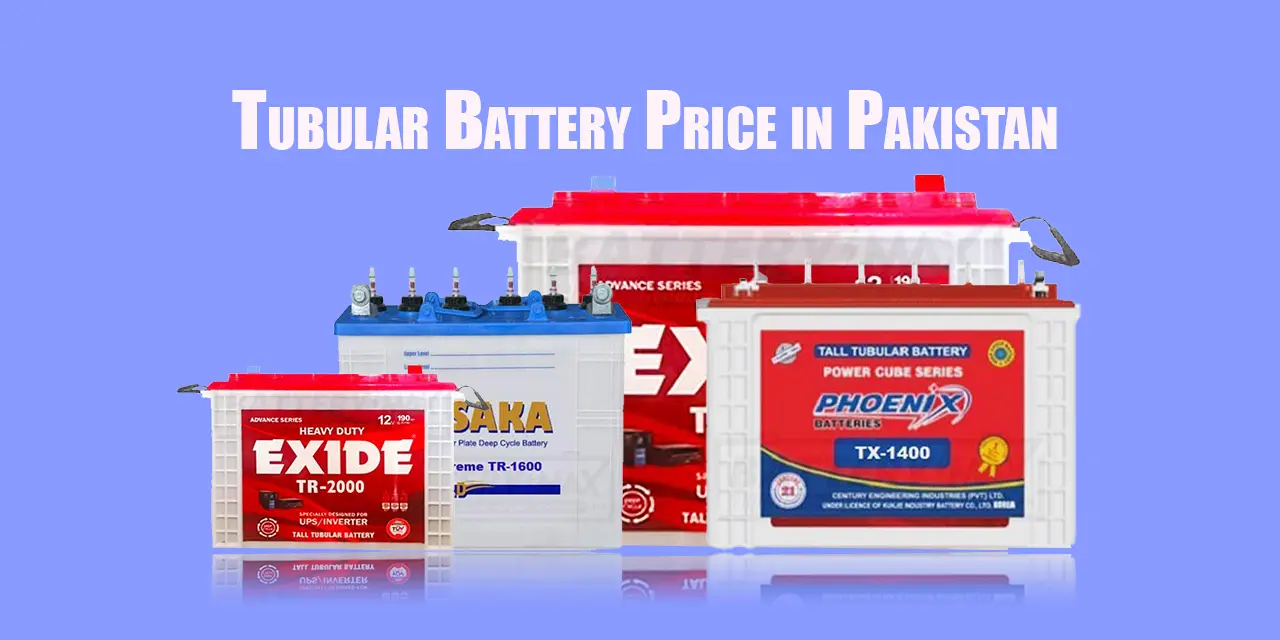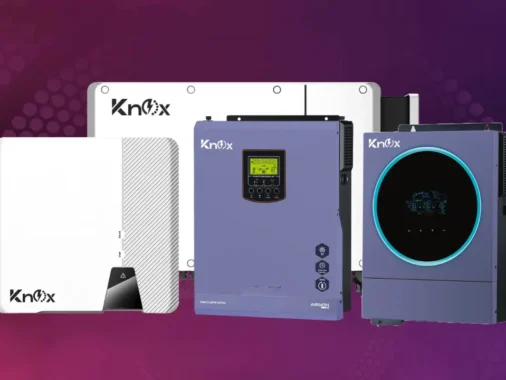Recently the electricity prices in pakistan are going to increase day by day, it is difficult for everyone to pay high electricity bills. That’s why the use of solar systems with tubular batteries is becoming popular in pakistan. People are shifting to solar power for their homes and businesses. solar panels price in pakistan is decreasing, and tubular battery prices in pakistan are also decreasing day by day. The use of tubular batteries is also increasing. If I compared to flat-plate batteries, tubular batteries have higher power densities, capacities, and lifespans. They will also perform better in demanding situations like excessive weight, cold storage, and high temperatures.
What is the tubular battery?
Tubular batteries are lead-acid batteries designed for long-term use in reserve power applications. They are famous for their strong design and better performance than conventional flat-plate batteries.
Are tubular batteries compatible with solar inverters?
Yes, solar inverters can be used with tubular batteries. Lead-acid batteries, known as tubular batteries, are utilized in a number of devices, such as home UPSs, power backup systems, and solar products. Compared to flat plate inverter batteries, they are bigger.
What is a tubular battery warranty claim?
The procedure for obtaining a replacement or repair for a tubular battery that is covered by a warranty is known as a warranty claim.it is almost 6 month but batteries life is around one your. Although they differ from manufacturer to manufacturer, the terms and conditions and warranty duration for a tubular battery typically consist of:
Duration of warranty
The duration of the battery’s warranty coverage.
Exclusions
The guarantee does not cover things like accident damage, misuse, and recharging.
Procedure for claims
How to file a claim, including which paperwork is needed and where to send it?
Choice
What happens to a faulty battery, and who decides to replace or repair it?
What technology is used in Tubular batteries?
Tubular batteries employ a range of technologies, such as:
The electrochemical process
To transform chemical energy into electrical energy, tubular batteries employ an electrochemical reaction. Sulfuric acid and lead oxide on the positive plate combine to form lead sulfate and water when an electrical load is added.
Positive tube plate
The electrodes are kept inside a fabric tube, which serves as the positive plate of a tubular battery. Compared to traditional flat plates, this design makes it possible for the battery to withstand the accumulation of lead sulfate. By preventing overcharging or undercharging, Automatic Temperature Technology (ATC) protects the battery from temperature fluctuations.
Oxides that conduct protons
These oxides are a desirable option for electrolyte materials because of their strong conductivity at medium and low temperatures.
How we can increase tubular batteries life span?
On average, tubular batteries have a lifespan of two to three years. The following tips will help a tubular battery last longer:
Discharge
Don’t drain the battery completely. Discharge it well within the depth of discharge advised by the manufacturer.
Four-stage charging, comprising bulk, absorption, float, and trickle stages, should be used. Make sure to properly and consistently charge the battery. Once a month, if there hasn’t been a power outage for a while, fully drain the battery before recharging it.
Storage
The battery should be kept at or near 59°F (15°C) in a cool, dry location.
Please keep it away from coolness and direct sunshine. Prevent unintentional discharge or terminal damage by keeping the battery in its original packing.
Location
The battery should be placed in a location with good ventilation. Keep it out of children’s reach.
Maintenance
Use hot water to periodically clean the battery plugs.
Tubular batteries vs lithium-ion batteries
Lithium-ion and tubular batteries vary in several aspects, such as price, longevity, and performance:
Price: Lithium-ion batteries are more expensive than tubular batteries. However,lithium-ion batteries are smaller, need less maintenance, and have a longer lifespan so they can save money.
Lifespan: The normal lifespan of tubular batteries is two to three years, whereas lithium-ion batteries can last up to ten years.
The performance: Long-term exposure to heat can shorten the lifespan of lithium-ion batteries, yet they function effectively at higher temperatures. Although tubular batteries lose capacity below zero, they can function better in extremely hot or cold temperatures.
Charging: Tubular batteries take longer to charge than lithium-ion batteries. Trickle charging is necessary for tubular batteries to maintain their gravity, whereas lithium-ion batteries charge in two phases and do not require it.
Density of energy: Lithium-ion batteries can store more energy in smaller containers because they have higher energy density than Tubular batteries.
Effects on the environment: The environmental effects of lithium-ion batteries are more then tubular batteries.
You can take your budget and particular needs into account when deciding between a lithium-ion and tubular battery.
Are tubular batteries giving backup to run ac all night?
Although tubular batteries can offer dependable backup power for extended periods, their ability to run an air conditioner overnight depends on a number of variables, such as the battery’s capacity, the power consumption of the air conditioner, and the inverter’s capacity:
Battery capacity
An appliance that uses 1 amp of current can run on a 220 ampere-hour (Ah) battery for 220 hours.
Consumption of AC power
At least 4 batteries with a 150mAh capacity each are needed for a 1-ton air conditioner.
capacity of the inverter
With a large battery bank and a high-capacity inverter, an air conditioner can operate for several hours.
Is water necessary for a tubular battery?
If your tubular battery has to be maintained topped off with distilled water, wait until the battery has cooled and been charged. This maintains appropriate electrolyte levels and stops spills. Avoid over-discharging. Don’t let your tubular battery go entirely flat.
Tubular battery vs Normal battery
With a longer lifespan, greater capacity, and superior resistance to harsh environments, tubular batteries are regarded as a higher-performance alternative to conventional batteries:
Performance: Compared to conventional batteries, tubular batteries can provide greater power due to their bigger surface area.
Lifespan: The longevity and robustness of tubular batteries are well-known. They are resistant to high temperatures and deep discharge cycles.
Capacity: Compared to regular batteries, tubular batteries offer a larger capacity.
Internal resistance is lower in tubular batteries than in regular batteries.
Cost: Although tubular batteries are more costly than regular batteries, they are less expensive than gel batteries and provide superior performance.
Size: Because tubular batteries are heavier and larger than regular batteries, installing them in some settings may be more challenging.





